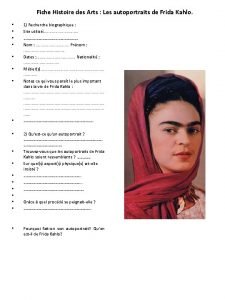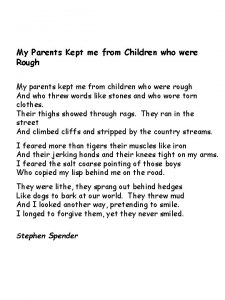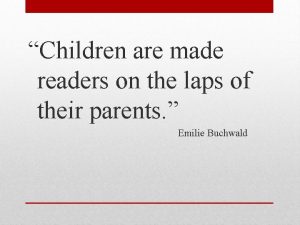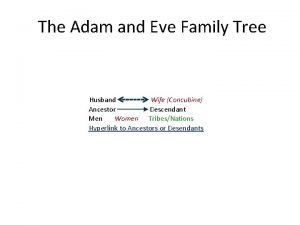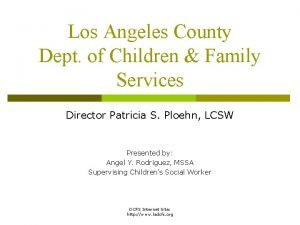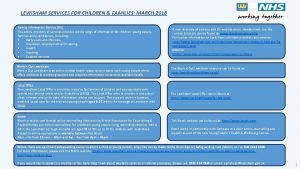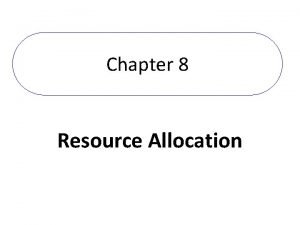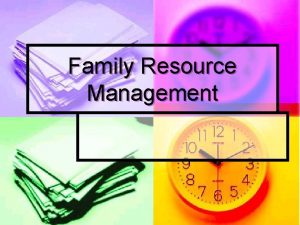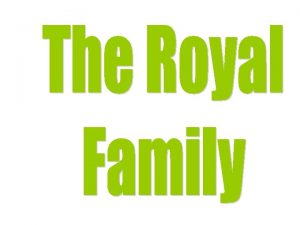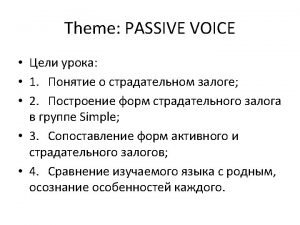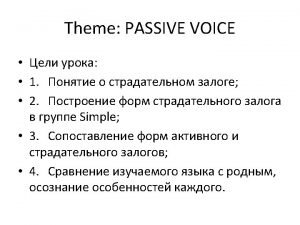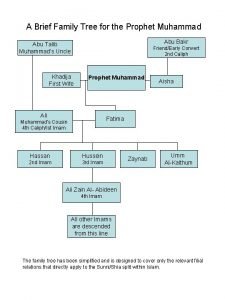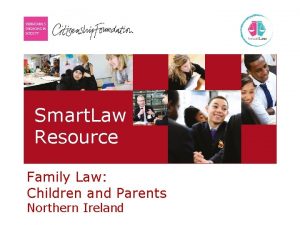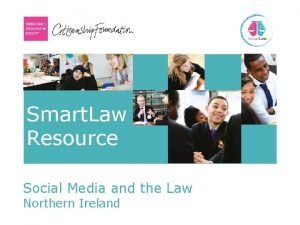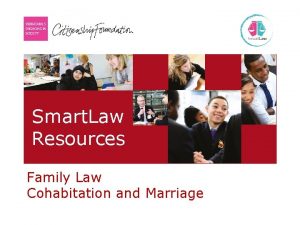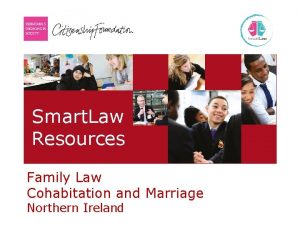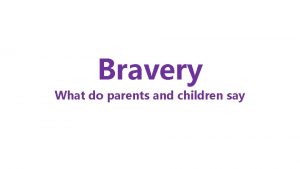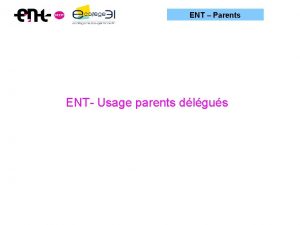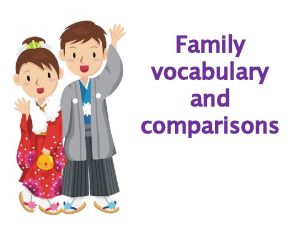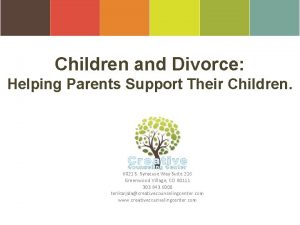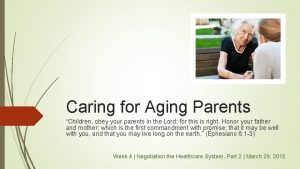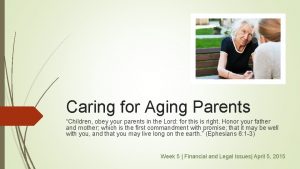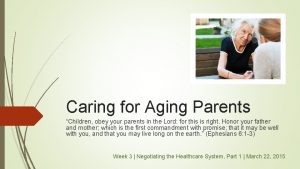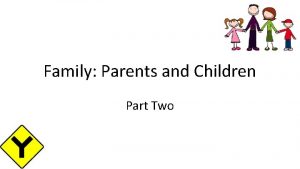Smart Law Resource Family Law Children and Parents


























- Slides: 26

Smart. Law Resource ● Family Law: Children and Parents Northern Ireland

Family Law - Children and Parents Lesson Objectives • Know the different areas of parent-child relationships that the law controls • Understand the responsibilities parents have in relation to their children and consider whether they are fair • Explore a case study about consequences for parents and children when children do not go to school © Citizenship Foundation 2016 • Charity Reg. No. 801360

Family Law - Children and Parents Where does the law control the relationship between parents and children? Care of children when parents separate or divorce Requires parents to ensure their children have a proper, full-time, education Consider: Laws designed to protect children from neglect or harmful treatment Why do you think there are laws which get involved in the relationship between parents and children? © Citizenship Foundation 2016 • Charity Reg. No. 801360 ?

Family Law - Children and Parents Quiz Complete the quiz in pairs to test your knowledge of the law relating to children and parents. © Citizenship Foundation 2016 • Charity Reg. No. 801360

Family Law - Children and Parents The Answers 1. From what age can a parent leave a child alone in a house or flat? D – There is no legal age limit Although there is no age limit, parents can be prosecuted for leaving a child alone if it places them at risk. They could face a hefty fine or maximum of 10 years in prison for doing so. The key factor to consider is the age and maturity of the child. NSPCC Guidelines state that children under 12 are rarely mature enough to be left alone. © Citizenship Foundation 2016 • Charity Reg. No. 801360

Family Law - Children and Parents The Answers 2. What is the minimum age at which someone can babysit? D – There is no minimum age If parents leave their child alone, they have a legal duty to choose someone who is able to look after their children properly. If a serious accident occurs, they will have to convince the court that they made sure that their child was being looked after properly. © Citizenship Foundation 2016 • Charity Reg. No. 801360

Family Law - Children and Parents The Answers 3. At what age can someone get married without their parents’ permission? D – 18 A young person may marry at 16 with their parents’ written permission. No valid marriage can take place in the UK if one of the partners is aged 15 or under. © Citizenship Foundation 2016 • Charity Reg. No. 801360

Family Law - Children and Parents The Answers 4. At what age can a child receive medical treatment or advice without their parents’ permission? D – When the doctor believes the patient fully understands what is being proposed In Northern Ireland, the legal age of capacity is 18. Under section 4 of the Age of Majority Act (Northern Ireland) 1969, patients aged 16 or 17 can provide consent to their own medical care, if they are deemed to be capable of making informed decisions Children under 16 can consent to medical treatment if they understand what is being proposed. It is up to the docotor to decide whether the child has the maturity to understand the nature of the treatment, the options, risks and benefits. © Citizenship Foundation 2016 • Charity Reg. No. 801360

Family Law - Children and Parents The Answers 5. At what age can a child leave home without their parents’ permission? B, C and D - 16, 17 and 18 A young person under 18 is still, by law, under the custody and care of their parents, and needs parental consent to leave home. In reality, courts are unlikely to send a 16 or 17 year old back home, unless they are in danger. © Citizenship Foundation 2016 • Charity Reg. No. 801360

Family Law - Children and Parents The Answers 6. At what age can a child change their name without their parents’ permission? A - 16 Children under 16 need the permission of everyone who has parental responsibility for them. If you are under 16 your parents can change your name without your consent. © Citizenship Foundation 2016 • Charity Reg. No. 801360

Family Law - Children and Parents The Answers 7. From what age can a child leave school against their parents’ wishes? C - 16 If you turn 16 between 1 st September and 1 st of July you can leave school on the 30 th of June that year. If you become 16 between 2 nd July and 31 st of August then you cannot leave school until the 30 th of June the following year. © Citizenship Foundation 2016 • Charity Reg. No. 801360

Family Law - Children and Parents The Answers 8. From what age can a child opt out of religious education at school? D - 18 Religious Education (RE) is a compulsory part of the Northern Ireland curriculum although your parents have the right to withdraw you from part or all RE/collective worship. Schools must provide RE in accordance with the case syllabus drawn up by the four main churches and specified by the department of education © Citizenship Foundation 2016 • Charity Reg. No. 801360

Family Law - Children and Parents Parental Responsibilities What do you think the law says about the responsibilities parents have for their children? We are now going to look at some different scenarios. You will need to consider whether you think parents should have a responsibility in each situation and be prepared to justify your answers. © Citizenship Foundation 2016 • Charity Reg. No. 801360

Family Law - Children and Parents Parental Responsibilities Parents should have a responsibility to make sure that their child turns up for lessons and is alert and ready to learn The law says: This is a responsibility of both children and parents. Parents are responsible for preparing their children for going to school and working hard while they are there. Do you think this is fair? No © Citizenship Foundation 2016 • Charity Reg. No. 801360 Yes

Family Law - Children and Parents Parental Responsibilities Parents should have a responsibility to make sure that their child does not misbehave in school The law says: Parents are responsible for instilling in their children the right attitude towards school as school is important in preparing children for adult work. Do you think this is fair? No © Citizenship Foundation 2016 • Charity Reg. No. 801360 Yes

Family Law - Children and Parents Parental Responsibilities Parents should have a responsibility to make sure that their child does not drink alcohol illegally The law says: Currently parents do not have this legal responsibility but it has been suggested there should be compulsory parenting courses for parents who fail to stop their children from alcohol abuse. Do you think this is fair? No © Citizenship Foundation 2016 • Charity Reg. No. 801360 Yes

Family Law - Children and Parents Parental Responsibilities Parents should have a responsibility to know the whereabouts of their children The law says: Parents have this responsibility because this is part of being responsible for their children's safety and also ensuring that they are not breaking the law (e. g. trespassing) or behaving anti-socially. Do you think this is fair? No © Citizenship Foundation 2016 • Charity Reg. No. 801360 Yes

Family Law - Children and Parents Parental Responsibilities Parents with young children should have a responsibility not to smoke in front of them The law says: In Northern Ireland it is likely to come into force in 2017 that it is illegal to smoke in a vehicle carrying someone under the age of 18. This law does not apply to e-cigarettes or smoking in the home. Do you think this is fair? No © Citizenship Foundation 2016 • Charity Reg. No. 801360 Yes

Family Law - Children and Parents Parental Responsibilities Parents should have a responsibility to make sure that their child attends school The law says: Parents have a legal responsibility to make sure their child has an ‘efficient full-time education … at school or otherwise. ’ ‘Otherwise’ allows parents to educate their children at home. Do you think this is fair? No © Citizenship Foundation 2016 • Charity Reg. No. 801360 Yes

Family Law - Children and Parents Parental Responsibilities Parents of bullies should be held responsible for their children's actions The law says: In 2007, the government issued guidance encouraging the use of Parenting Orders as a means to combat bullying in schools. Parents who have an order imposed on them are required to control their children and may be sent to parenting classes. If they fail to do enough to stop the bullying they could be charged with a criminal offence and fined up to £ 1, 000. This legislation is not yet active in Northern Ireland. Do you think this is fair? No © Citizenship Foundation 2016 • Charity Reg. No. 801360 Yes

Family Law - Children and Parents Case Study We are now going to look at a case study of what happens to parents and children when the children persistently fail to attend school. You will need your Action/No Action cards. At each stage you will need to decide whether any action should be taken and by whom. © Citizenship Foundation 2016 • Charity Reg. No. 801360

Family Law - Children and Parents Stage One A mother, bringing up two girls aged 12 and 14, loses her mother. As well as suffering a great personal loss, the parent struggles with poor health and finds it difficult to keep everything going at home. Her children start to skip school. The school becomes concerned over these absences. © Citizenship Foundation 2016 • Charity Reg. No. 801360 Action No Action ? Consider: • What should the action be and why? • Why should there be no action taken?

Family Law - Children and Parents Stage Two The school decides to take action and reports the matter to the education authority (EA). The children’s mother is visited by an attendance officer from the EA. However, both girls continue to miss school. The EA continues to try to get the children back in school, but does not succeed. Their mother avoids contact and misses appointments to discuss the situation with officials. © Citizenship Foundation 2016 • Charity Reg. No. 801360 Action No Action ? Consider: • What should the action be and why? • Should the local authority continue to focus on helping the mother or use a different strategy? • Should the mother be taken to court for failing to ensure that her children were in school? What impact might this have?

Family Law - Children and Parents Stage Three After almost a year of trying to get the girls back into schools, the EA decides to prosecute the girls’ mother. The attendance rates of the two girls were 29% and 43%. The girls’ mother is found guilty of failing to prevent her daughters’ truancy. © Citizenship Foundation 2016 • Charity Reg. No. 801360 Action No Action ? Consider: • What should happen next? • How would you punish the mother and why? • Which do you favour? Why?

Family Law - Children and Parents Stage Four The mother was sentenced to 60 days in prison. While she was serving her sentence, her lawyers appealed, claiming that the sentence was excessive. They were successful; it was reduced to 28 days and the mother was released from prison. © Citizenship Foundation 2016 • Charity Reg. No. 801360 Action No Action ? Consider: • Is this punishment just or is it too severe? • What do you think the possible consequences of this sentence could be? Who does it affect? • Would your parents/carers know if you didn’t turn up to school?

Family Law - Children and Parents Plenary • Is it appropriate for the law to be used to shape people’s personal lives? • Should parents be able to bring up their children however they want? • Are there any areas of the relationship between parents and children that you think the law should definitely not intervene in? Tweet us the most interesting thing you learnt today! @Smart. Law. CF using the hashtag #Smart. Law or leave a comment on our Facebook page, Smart. Law – Citizenship Foundation © Citizenship Foundation 2016 • Charity Reg. No. 801360
 Frida kahlo arbre généalogique
Frida kahlo arbre généalogique Parents parents
Parents parents Autoportraits de frida kahlo
Autoportraits de frida kahlo My parents kept me
My parents kept me Children are made readers on the laps of their parents
Children are made readers on the laps of their parents Children are made readers on the laps of their parents
Children are made readers on the laps of their parents Timothy winter education
Timothy winter education My parents stephen spender analysis
My parents stephen spender analysis Eph 6:1-2
Eph 6:1-2 Eve family tree
Eve family tree Child welfare services
Child welfare services Downderry children's and family centre
Downderry children's and family centre Resource loading vs resource leveling
Resource loading vs resource leveling Perbedaan resource loading dan resource levelling
Perbedaan resource loading dan resource levelling Types of family resources
Types of family resources Queen elizabeth parents family tree
Queen elizabeth parents family tree Newton's first law and second law and third law
Newton's first law and second law and third law Newton's first law of motion
Newton's first law of motion Street smart vs book smart
Street smart vs book smart Smart two men are
Smart two men are It is not how smart you are it's how you are smart
It is not how smart you are it's how you are smart Future smart growing a business answers
Future smart growing a business answers It's not how smart you are
It's not how smart you are Street smart vs book smart quotes
Street smart vs book smart quotes Street smart vs book smart quotes
Street smart vs book smart quotes One smart man he felt smart
One smart man he felt smart Uncle of muhammad
Uncle of muhammad


